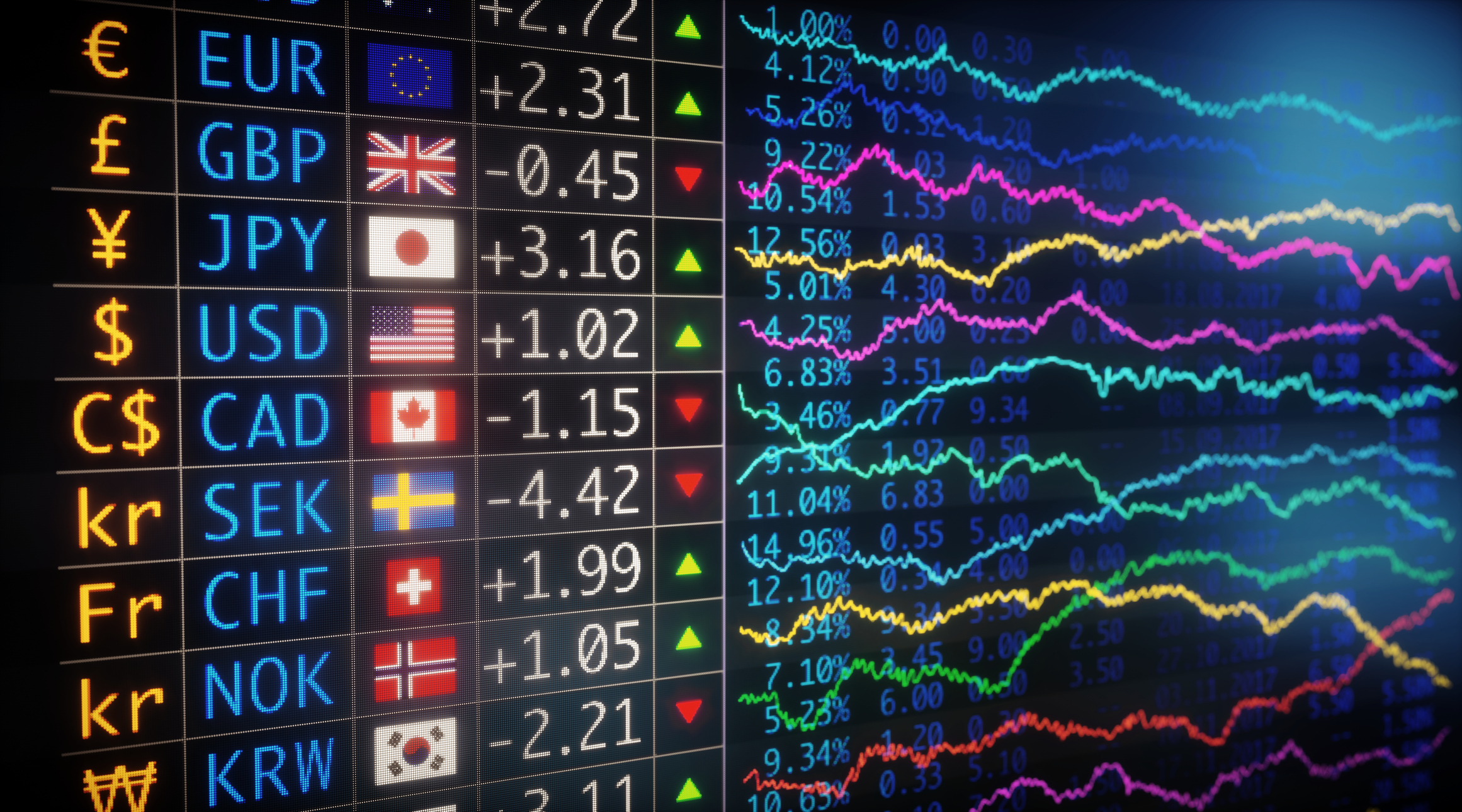Table of Contents
In the intricate tapestry of financial markets, investors stand at a crossroads, pondering the choice between two juggernauts of the trading world: Forex and Stocks. Each represents a distinct avenue, laden with opportunities and complexities. Let’s embark on a journey to unravel the nuances, merits, and considerations that define the dichotomy of Forex vs. Stocks.
The Forex Frontier: Where Currencies Converge
At the heart of the Forex realm lies the exchange of currencies, a dynamic marketplace where the fate of dollars, euros, and yen intertwines in a ceaseless dance of supply and demand.
- Liquidity Dynamics: Forex, known for its unparalleled liquidity, allows traders to enter and exit positions with ease. The vast trading volume ensures that currency prices reflect market sentiment with remarkable accuracy.
- Currency Pairs: In the Forex universe, currencies are traded in pairs, such as EUR/USD or GBP/JPY. The exchange rate reflects the value of one currency relative to another, and traders capitalize on fluctuations in these rates.
- 24/5 Market: One of Forex‘s distinctive features is its around-the-clock nature. Operating 24 hours a day, five days a week, it accommodates global trading hubs from London to New York to Tokyo, providing constant opportunities for trading.
Navigating the Stock Seas: Equities in Motion
On the flip side, the Stocks domain revolves around ownership in companies, with traders investing in shares that represent a stake in a corporation.
- Ownership Appeal: Unlike Forex, investing in stocks means ownership. Each stock purchase bestows a slice of ownership in the company, entitling the shareholder to a portion of profits and voting rights at shareholder meetings.
- Market Exchanges: Stock trading occurs on formal exchanges such as the New York Stock Exchange (NYSE) or NASDAQ. These regulated environments offer transparency and structure to stock transactions, instilling a sense of security among investors.
- Dividends and Capital Gains: Stocks offer the prospect of both dividends and capital gains. While some companies distribute a portion of their profits as dividends, others may see their stock prices appreciate, allowing investors to profit from selling shares at a higher value.
Key Distinctions: Forex vs. Stocks
Leverage and Margin
In the realm of Forex, leverage is a double-edged sword. While it magnifies potential profits, it equally amplifies risks. Traders can control larger positions with a smaller capital outlay, a feature less prevalent in the stock market.
In Stocks, leverage is typically more conservative. Margin trading exists but is subject to regulatory restrictions. The emphasis is often on the long-term value of the stocks rather than short-term speculative gains.
Market Participants
Forex is a domain where central banks, financial institutions, hedge funds, and retail traders converge. The diversity of participants contributes to the market’s dynamism and liquidity.
Stocks attract a broader array of investors, including institutional and retail traders, long-term investors, and value seekers. The stock market reflects not only economic conditions but also the fortunes of individual companies.
Market Analysis Techniques
Forex trading often involves extensive use of technical analysis. Traders scrutinize charts, indicators, and patterns to make informed decisions based on historical price data.
In Stocks, fundamental analysis plays a prominent role. Investors evaluate a company’s financial health, earnings reports, and growth prospects to determine the intrinsic value of a stock.
Risk Considerations: A Balancing Act
Both Forex and Stocks carry their share of risks, demanding a judicious approach from investors.
- Volatility: While Forex is renowned for its rapid price movements and high volatility, stocks are not immune to market fluctuations. Individual stocks can experience significant price swings, especially in response to company-specific news.
- Global Events Impact: Forex is highly sensitive to global economic and geopolitical events. Economic indicators, political developments, and unexpected events can swiftly impact currency values. Conversely, stocks can be influenced by both broader economic trends and company-specific news, making diversification a risk management strategy.
- Leverage Risks: The allure of leverage in Forex can lead to substantial losses. Excessive leverage, coupled with volatile market conditions, can wipe out trading accounts. In stocks, while leverage is present, it is often used more cautiously.
Choosing Your Investment Path: A Personal Odyssey
The decision between Forex vs. Stocks ultimately rests on the investor’s preferences, risk tolerance, and financial objectives.
- Risk Appetite: Forex, with its rapid price movements, may appeal to those comfortable with higher volatility. Conversely, investors seeking more stability may find the predictable rhythms of the stock market better aligned with their risk tolerance.
- Investment Horizon: Stocks often attract long-term investors aiming to benefit from a company’s growth over time. In contrast, Forex may attract those with a shorter investment horizon, seeking to capitalize on daily or intraday price movements.
- Market Knowledge: Proficiency in technical analysis may tilt the scale towards Forex, while a penchant for digging into financial statements and market trends may make Stocks more appealing.
The Tapestry of Diversification
For astute investors, the journey may not be an either-or scenario. Diversification, the art of spreading investments across different asset classes, allows one to harness the strengths of both Forex and Stocks.
- Balancing Act: Combining Forex for short-term trading opportunities with Stocks for long-term growth can create a balanced portfolio. Each asset class contributes its unique attributes to the overall investment strategy.
- Risk Mitigation: Diversification acts as a buffer against market-specific risks. A diversified portfolio can weather the storms of individual market fluctuations, fostering stability and resilience.
- Holistic Approach: The synergy of Forex and Stocks in a diversified portfolio reflects a holistic investment approach. It embraces the diverse opportunities offered by both markets while mitigating the inherent risks.
Conclusion: The Harmonious Symphony
In the grand orchestra of financial markets, the choice between Forex vs. Stocks is a symphony of individual preferences and strategic considerations. Each market, with its distinctive features, beckons to investors seeking opportunities in the vast expanse of the financial realm. Whether navigating the currency currents of Forex or navigating the corporate seas of Stocks, the astute investor crafts a harmonious melody, blending the strengths of each to compose a unique investment opus.





